Feb 14, 2025
How to Balance Work, Life, and an Intensive Outpatient Program
Key Takeaways:
- IOPs give you structured, evidence-based addiction care while you live at home and keep up with work or family duties.
- Multiple studies show outpatient treatment can match inpatient rehab for abstinence and recovery success, often at a lower cost and with greater flexibility. (1)
- A typical IOP meets 9–12 hours each week (three-hour sessions, three or four days). NOLA Detox offers 3-hour sessions four days a week with day or evening options to fit your schedule.
- Sticking to a clear calendar, talking with your employer, leaning on loved ones, and practicing daily self-care drastically improve work-life-IOP balance.
- Recovery continues after the program. Follow-up visits, support groups, and family therapy help you maintain long-term sobriety.
Finding balance in life can be challenging, but when you’re also working toward recovery, it can feel downright overwhelming.
Juggling a career, personal commitments, and an intensive outpatient program (IOP) may seem impossible at first, but with the right support and strategies, you can reclaim control of your life.
At NOLA Detox & Recovery Center, you don’t have to choose between your recovery and your responsibilities. We offer a flexible, effective IOP that allows you to heal while keeping up with your daily routine.
In this blog, we’ll explore practical ways to manage work, life, and IOP, and highlight how our program can help you stay on track toward lasting sobriety.
Understanding Intensive Outpatient Programs
Intensive outpatient programs provide a structured treatment plan for individuals recovering from substance use disorders and co-occurring mental health conditions. Unlike inpatient rehab, IOP allows patients to live at home, continue working, and fulfill family obligations while attending therapy sessions multiple times per week.
According to research from the National Library of Medicine (1), outpatient rehab can be just as effective as inpatient treatment for some individuals, leading to higher abstinence rates and improved recovery outcomes while offering greater flexibility and affordability.
The success of an IOP depends on the individual’s needs, commitment to recovery, and the severity of their condition.
Strategies for Balancing Work, Life, and an IOP
1. Create a Structured Schedule
One of the key components of balancing an IOP with work and life is maintaining a structured routine. With NOLA Detox’s IOP offering three-hour sessions four days a week, patients can select day or evening classes to fit their schedules. Use a planner or digital calendar to map out work hours, therapy sessions, and personal time to avoid conflicts and stay on track.
2. Communicate With Your Employer
If you are employed, consider discussing your treatment schedule with your employer. While you are not required to disclose personal details, informing your supervisor that you are prioritizing your health can help you gain the necessary support. Many workplaces offer Employee Assistance Programs (EAPs) that provide additional resources for individuals undergoing treatment.
3. Lean on Your Support System
Balancing an IOP with daily life is easier with the right support network. Whether it’s family, friends, or support groups, having people who encourage and understand your journey can make a significant difference. NOLA Detox’s IOP fosters a sense of community by connecting patients with supportive peers in group therapy sessions.
4. Prioritize Self-Care and Mental Well-Being
Recovery is a physical and emotional process. Ensuring you get enough sleep, eat well, and engage in stress-relieving activities — like meditation, exercise, or hobbies — can help you maintain balance. NOLA Detox integrates New Orleans culture into our programs, using food, music, and community engagement to teach patients how to enjoy life in recovery.
5. Stay Committed to Your Recovery Plan
IOP success depends on consistency. While the flexibility of outpatient care allows you to continue working and living at home, it’s crucial to attend all scheduled sessions, actively participate in therapy, and follow medical guidance. Completing your treatment plan improves long-term recovery outcomes.
What to Expect From NOLA Detox’s IOP
- Personalized treatment plans: Patients receive individual therapy tailored to their unique needs.
- Medication-assisted treatment (MAT): Under the care of experienced physicians, medication can be used to manage withdrawal symptoms and cravings.
- Group therapy & peer support: Our program connects patients with others in recovery to build a strong support network.
- Educational workshops & coping skills training: Learn tools to handle stress, triggers, and daily life challenges while staying sober.
- Flexible scheduling: We offer day and night classes four days a week, ensuring accessibility for working professionals and caregivers.
Is IOP Right for You?
Here are some signs an intensive outpatient program is right for you:
- You are transitioning from an inpatient program and need continued support.
- You have a strong support system at home and in your community.
- You need treatment but cannot take an extended leave from work or family.
- You are motivated to achieve long-term sobriety while maintaining daily responsibilities.
Life After IOP: Continuing Your Recovery Journey
Completing an IOP is a significant achievement, but recovery doesn’t stop after treatment. NOLA Detox offers a continuum of care to ensure ongoing success.
This includes:
- Follow-up visits to monitor progress and address challenges
- Support group meetings to stay connected with the recovery community
- Family therapy sessions to rebuild relationships and strengthen support systems
- Referrals to additional healthcare providers for continued mental health and medical care
Intensive Outpatient Program FAQ
Can You Work While in an Intensive Outpatient Program?
Intensive outpatient programs (IOPs) allow participants to maintain employment during treatment.
Flexible day-or-evening sessions are built so you can attend therapy before or after work and still meet job obligations.
How Many Hours a Week is an IOP?
Most IOPs require 9–12 therapy hours per week spread across several days. National guidelines describe three-hour groups held three to five times weekly.
NOLA Detox runs 3-hour groups four days a week, giving you about 12 hours of care without disrupting the entire workweek.
Does Insurance Cover Intensive Outpatient Programs?
Most health insurance plans provide at least partial coverage for IOP services.
Coverage specifics vary by carrier, plan, and state, but commercial insurers, Medicare, and many Medicaid plans recognize IOP as a covered level of care, typically leaving you responsible only for co-pays or coinsurance.
Is an IOP as Effective as Inpatient Rehab?
Clinical research finds that IOP outcomes are comparable to inpatient rehab for many individuals with substance-use disorders. (1)
For patients who have strong home support and moderate clinical needs, outpatient care can deliver similar abstinence rates and treatment completion while costing less and allowing real-world practice of coping skills.
Do IOP Participants Get Drug Tested?
Substance-use IOPs typically incorporate regular drug testing to monitor abstinence. Programs often follow SAMHSA guidelines for urine screening or other methods as an accountability tool and to tailor ongoing care as needed.
What Happens After IOP Ends?
Completion of an IOP is usually followed by structured aftercare to support long-term recovery.
Common next steps include weekly therapy, alumni or 12-step meetings, family counseling, and periodic check-ins with medical staff. NOLA Detox coordinates these services so that your progress continues well beyond the program.
Take the First Step Toward Recovery
Balancing work, life, and an intensive outpatient program may seem challenging, but with the right strategies and support, it is entirely possible.
At NOLA Detox & Recovery Center, we provide comprehensive, compassionate care that allows you to heal while maintaining your daily responsibilities.
If you or a loved one is struggling with addiction, don’t wait — reach out to NOLA Detox today and let us help you build a sustainable, fulfilling life in recovery.
Source:
- https://www.ncbi.nlm.nih.gov/books/NBK507689/


